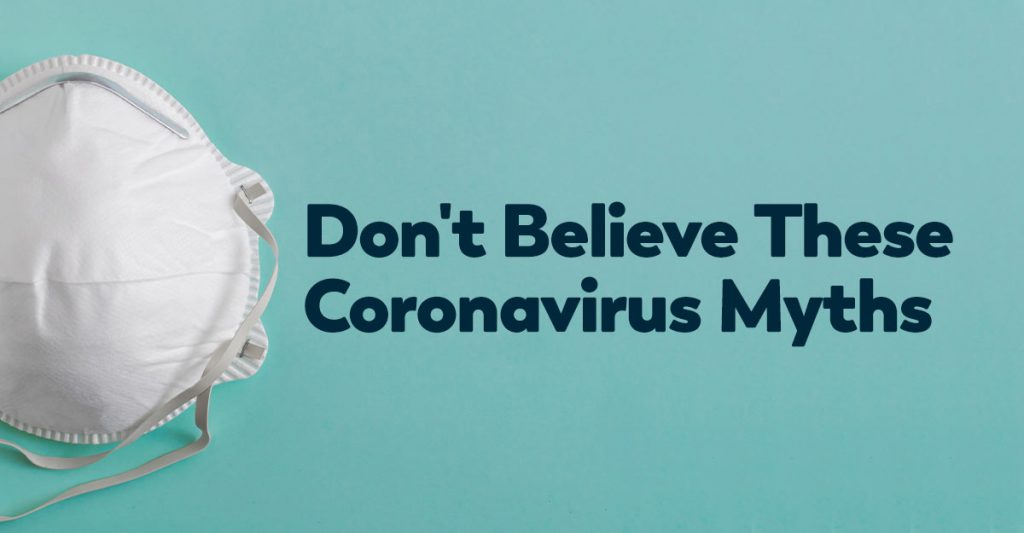
Coronavirus has been one of the great newsmakers of 2020, and people are worried! Even though the virus has barely become established in the United States, that hasn’t stopped the media from whipping the populace into a state of anxiety. The question is, is all of this worry warranted?
It depends on who you are, and how you frame the problem. Unfortunately, because of rumors, bad information, and folk tales, lots of people don’t have the information they need to plan appropriately for this threat. So let’s take a look at certain myths that have emerged about coronavirus, and how to dispel them with knowledge.
Myth: The Masks Will Keep You Safe
The ubiquitous safety/surgery masks we see on TV won’t actually protect you from contracting the virus. They are flimsy and don’t provide adequate protection for unimaginably tiny airborne viral agents. These may help protect others from your sneezes and coughs if you become ill, but if you want to stay well, just stay home, and stop buying up the last remaining supplies of this important medical gear (often at greatly inflated prices!)
Myth: Coronavirus is Man-Made
Coronavirus is a species of virus that lives in mammals, particularly their respiratory tracts. This family of viruses evolves in nature, often in wild animal hosts far away from humans. However, it has been rumored that this virus was created in a Chinese bioweapon laboratory, then released or lost within the general population.
As Foreign Policy reports, there is no evidence to substantiate these claims. One source of this rumor may be an ex-military Israeli figure – not someone with day-to-day knowledge of the situation, or updated intelligence about Chinese events. However, the rumor spread faster than the virus itself, and many people believe it to be true now.
Instead, it’s more likely that the virus was passed from an animal to a human host within China, probably due to the prevalence of live animal markets, or the practice of poaching and eating wild animals throughout the Chinese countryside.
Currently, it is believed that those who were not exposed in wild animal markets likely contracted the disease from human-to-human contact.
Myth: Coronavirus is a Major Killer
There are those who believe that Covid-19 (the disease caused by this species of coronavirus) is a plague that could wipe out a significant portion of the people on Earth. However, there’s no evidence for this either. The WHO currently suggests that the fatality rate of Covid-19 is around 3.4%, but these figures are being updated regularly.
However, not all people will catch the virus. In fact, coronavirus’s infection rate is not high at all. Most people will not get infected. Unfortunately, there is great risk for those who get sick, but these are mostly a problem for the old or immune-compromised. In all likelihood, the virus will not result in widespread loss of life, particularly in the United States.
Myth: Coronavirus is No Big Deal
This line of reasoning, unfortunately, leads many to believe that coronovirus is no big deal. This isn’t true. WHO also reports that many people who get the virus have to be hospitalized for weeks, often receiving oxygen and mechanical breathing aids. This long duration of illness can fill up hospitals fast, resulting in healthcare provider shortages.
Coronavirus will come and go. It’s not a true hazard to life as we know it, but it’s not something to ignore either. Listen carefully to information you hear, and try to evaluate its quality. Don’t fall for coronavirus myths, and you will stay safe for the long haul!
